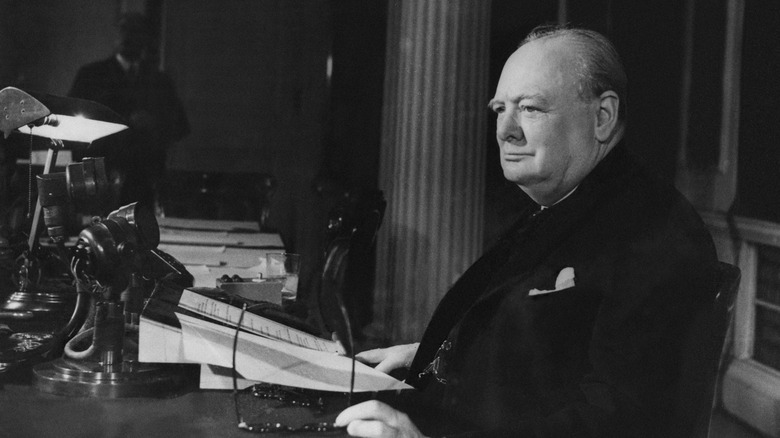The Dark Side Of Winston Churchill Everyone Likes To Ignore
Winston Churchill is known today as a bona fine British icon, a war hero who led the island nation to victory during its "darkest hour" in World War II and who has remained a towering figure in British culture ever since. Noted for his profoundly affecting oratory — his 1940 "we shall fight them on the beaches" speech is credited as bolstering British morale as their French allies were succumbing to the Nazi invasion, according to the Winston Churchill website – as well as his writing skills, which eventually won him the Nobel Prize in Literature in 1953, the lasting impact of Churchill has been such that a BBC poll taken in 2002 saw the wartime Prime Minister voted the "greatest Briton of all time."
But despite his now mythic status in the British psyche, Churchill was, after all, human, and, as academics are now keen to discuss, a deeply flawed one.
The disastrous consequences of Churchill's racial beliefs
It may not surprise you to learn that Churchill, who was born in 1874, harbored some beliefs about race that are truly shocking today. Per the Independent, Churchill, who was a keen supporter of the expansion of the British Empire and had served in the British military in a number of colonial campaigns as a young man, believed in the superiority of white Europeans over the non-white peoples — "savages" — the empire came to subjugate. "The Aryan stock is bound to triumph," the newspaper reports him as claiming.
It is perhaps unfair or even unwise to judge figures from the past by the standards of today, and it would be easy to dismiss criticism of Churchill's racism by claiming that such ideas were, at the time, commonly held. But as the academic Priyamvada Gopal writes in The Guardian: "Even [Churchill]'s contemporaries found his views on race shocking." And Churchill was often in a position of power to act upon his views, to shape government policy around his own prejudices. Many instances have been recorded, but possibly the most shocking was Churchill's treatment of the British Empire's Indian subjects, who suffered a deadly famine in 1943. Churchill was begged to send aid — but he didn't. Instead, he reportedly claimed that the disaster was the result of self-inflicted overpopulation and that the famine would be a "cull," according to The Independent. As a result, three million people lost their lives.

